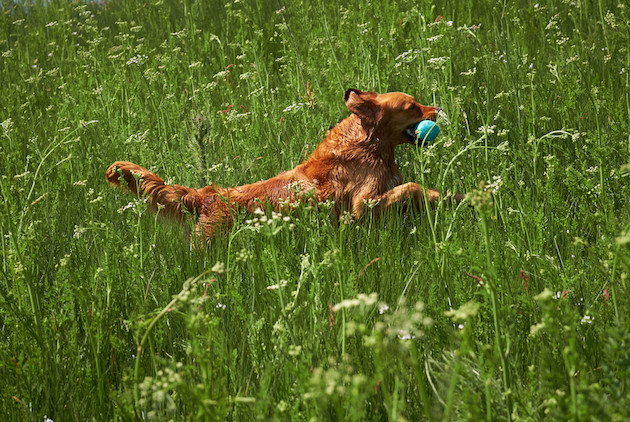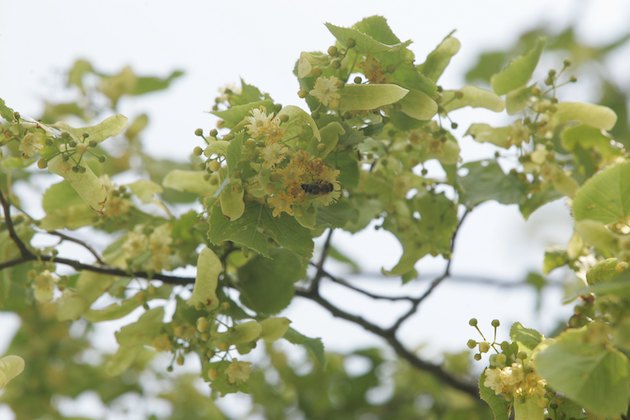Dog conjunctivitis
A: From what you describe, your dog is likely to have developed dog conjunctivitis. Conjunctivitis refers to in inflammation of the sensitive…
With the warm weather upon us, Dr Neil McIntosh reveals how to treat your dog's pollen allergies
 West Highland White Scotch terrier real home garden CH&I 06/2008 pub orig
West Highland White Scotch terrier real home garden CH&I 06/2008 pub orig
A high pollen count affects humans and dogs differently. Humans will sneeze, wheeze and get itchy eyes when they get hay fever. Dogs get scratchy and itchy if they suffer from a dog pollen allergy.
Around 10% of dogs are affected by seasonal pollen changes. Left untreated the condition can make the dog miserable and even worse, cause irreversible skin changes. You don’t need to be a vet to know that your dog is suffering but make sure it is diagnosed correctly, because if the allergy is treated incorrectly it can get even worse. It is caused by an inherited predisposition in the affected dogs to develop hypersensitivity-mediated skin disease against environmental allergens.
Your dog will not be happy. Inflammation and itching occurs in the face, ears, feet, belly and armpits. There may be brown saliva staining of the feet, caused by licking and you will see excoriation, hair loss, increased pigmentation and skin thickening. Ear and eye infections are common, hence the head shaking, ear scratching, face rubbing and hind leg “air-guitaring!”

Around 10% of dogs suffer from pollen allergies
Dogs suffering from pollen allergy will scratch a lot. This spreads secondary bacteria and yeasts such as staphylococcus and malassezia, which cause further flaking and pyoderma and are often the cause of failure of treatment when only the underlying allergy is considered.
We don’t really know. There is no point in the body mounting such an extreme reaction to harmless pollens. The science part is slightly bewildering. Seasonal pollen allergy is thought to be associated with dysregulation of cytokine production and aberrant T cells. The long and the short of it is the release of inflammatory chemicals including histamine and interleukins. Additionally, it is likely that patients have a defective epidermal barrier, a bit like an unwaxed car, that allows allergens to stick. Many seasonally allergic dogs go on to develop other allergies, with 30 percent being allergic to the house dust mites, dermatophagoides farina. Common pollen allergies include wheat, couch grass, dockens and sweet vernal. Think about the trees around you. Some, such as birch and alder, produce pollen early in the season.

Think about the trees around your home
It is very common in Westies but Labradors and golden retrievers figure highly too. Careful dam and sire selection is important as familial history of the condition makes it far more likely in offspring. Some say there is a link between month of birth and development of allergy. The theory is that dogs born during the pollen season are sensitised in the first few months of life. It is very uncommon in dogs less than a year old, except in Sharpeis (but you’re unlikely to see them on the shooting field). Inexplicably, it affects females more than males.
A: From what you describe, your dog is likely to have developed dog conjunctivitis. Conjunctivitis refers to in inflammation of the sensitive…
In recent weeks the weather has been both warm and wet. I keep a rain gauge in my garden: in the first…
Avoid outdoor activities at times of high pollen concentration. High winds and low humidity , remembering that high winds and low humidity will cause the pollen to spready more widely. Heavy rainfall improves air quality, while light showers worsen it. Rinsing the pollen off your dog after exercise may help things. Glucocorticoid steroids such as prednisolone can be effective at controlling the itch but they encourage weight gain, increase thirst and urination, can induce cystitis and increase the likelihood of secondary infections. Stop them if your dog appears worse but remember they should not be suddenly withdrawn if they have been used for a while! Cyclosporines given at 5mg/kg are very effective, but considerably more expensive. A new tablet medication, called Apoquel is extremely good at controlling the itch without side effects and is cheaper than cyclosporines.
Proper medicated shampoos, high-dose antibiotics, specific ear treatments, anti-histamines and skin supplements can all help.
Blood testing can reveal the allergens involved, allowing an animal-specific desensitisation vaccine to be produced, but the process is expensive (circa £500).
If your dog is very distressed and incessantly scratching then go to the vet to review the treatments available. There may be something that offers your faithful hound significant relief.
Get the latest news delivered direct to your door
Discover the ultimate companion for field sports enthusiasts with Shooting Times & Country Magazine, the UK’s leading weekly publication that has been at the forefront of shooting culture since 1882. Subscribers gain access to expert tips, comprehensive gear reviews, seasonal advice and a vibrant community of like-minded shooters.
Save on shop price when you subscribe with weekly issues featuring in-depth articles on gundog training, exclusive member offers and access to the digital back issue library. A Shooting Times & Country subscription is more than a magazine, don’t just read about the countryside; immerse yourself in its most authoritative and engaging publication.

